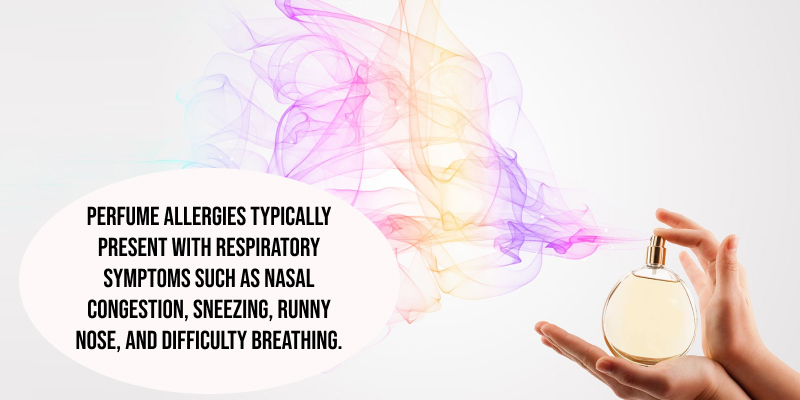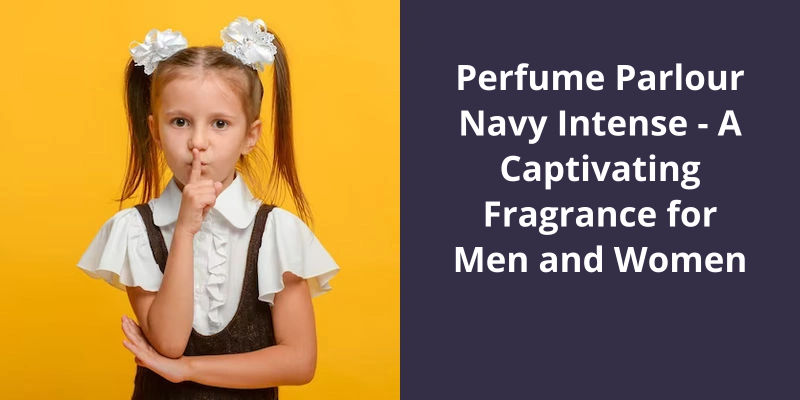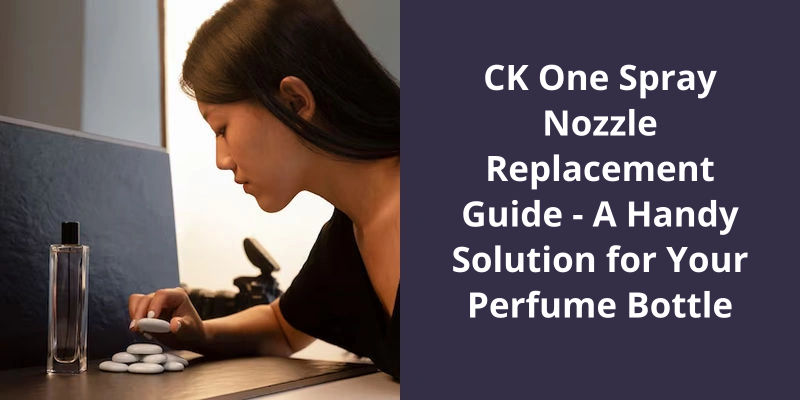Perfume can’t make you high in the sense of inducing a state similar to being on drugs or alcohol. However, certain fragrances can stimulate the nervous system and cause a reaction similar to a “rush” or temporary mood elevation. This happens due to the effect of the olfactory system, which is directly connected to the parts of the brain that process emotions and memory. Therefore, when you smell a perfume you love, it can cause a brief moment of pleasure or happiness. This isn’t the same as the “high” produced by substances such as drugs or alcohol. The impact of a scent is subjective and varies between individuals. It can also be influenced by personal experiences or memories associated with that scent.
Can You Get High Off of Fragrances?
Fragrances can be very potent and have mind-altering effects similar to drugs. Some fragrances can cause a high or euphoric feeling, while others can increase alertness and concentration. The use of fragrances can also lead to addiction or dependency due to the chemical reactions they trigger in the brain.
Certain fragrances may elicit strong emotional responses or trigger memories associated with past experiences. In some cases, fragrances can even alter the perception of time or space.
However, it’s important to use caution when experimenting with fragrances and to be aware of their potential dangers. As with any mind-altering substance, moderation and responsible use are key to avoiding negative consequences.
The Science Behind How Fragrances Affect the Brain and Body
- Fragrances trigger the olfactory system, which is responsible for our sense of smell.
- The olfactory system is linked to the limbic system, which is responsible for emotions and memories.
- Fragrances can evoke emotional and physiological responses, such as relaxation, arousal, and stress reduction.
- Different fragrances can have different effects on the brain and body, based on individual experiences and cultural associations.
- Research suggests that certain fragrances, such as lavender and peppermint, may have therapeutic benefits for conditions such as anxiety and pain.
- The use of fragrances in marketing, advertising, and product design is based on the science of how scent affects perception and behavior.
- However, the use of synthetic fragrances in some products has raised concerns about potential health risks and environmental impacts.
- More research is needed to fully understand the complex ways in which fragrances interact with our brains and bodies.
Now that we know perfumes are meant to be worn on pulse points, let’s delve into why it’s important to choose the right type of perfume and how to apply it properly to avoid any potential health risks.
Is It Bad to Spray Perfume on Your Body?
Some of the most common pulse points are the wrists, neck, behind the ears, and on the décolletage. Spraying perfume on these areas will help the fragrance to dissipate evenly and last longer. However, it’s important not to overdo it with the perfume. A little goes a long way, and too much can be overwhelming for you and those around you.
Furthermore, it’s important to be mindful of the type of perfume you wear. Some fragrances may contain ingredients that could irritate your skin or trigger an allergic reaction. It’s always a good idea to do a patch test before applying a new perfume to your skin. Apply a small amount of the perfume to the inside of your wrist and wait a few hours to see if there’s any reaction. If you notice any redness, itching, or a rash, refrain from using that fragrance.
Another factor to consider when spraying perfume on your body is the type of clothing you wear. Certain fabrics, such as silk or wool, may be damaged by perfume. It’s best to apply perfume before getting dressed, allowing the fragrance to settle on your skin before adding any clothing. Additionally, some perfumes can leave stains or discolouration on fabrics, especially if they contain alcohol.
Choose a fragrance that suits your skin type and personal taste, and apply it to your pulse points for maximum impact. Be cautious of any potential skin reactions and avoid spraying perfume onto your clothing to prevent damage. With these tips in mind, you can enjoy your favourite fragrances with confidence and style.
Even though most of us love wearing perfumes, recent studies have found that some chemicals present in perfumes could cause harm to our health. It’s said that perfumes contain various toxins and chemical compounds such as phthalates, benzene, formaldehyde, and many others. Therefore, it’s important to understand the various risks associated with using these fragrances regularly.
Are Perfumes Unhealthy?
Sandra Fryhofer, an allergist and spokesperson for the American College of Allergy, Asthma and Immunology. Fragrances and perfumes often contain numerous synthetic chemicals that can be harmful to human health. Many of these chemicals come from petrochemicals, which aren’t only harmful to the environment but also dangerous to human health.
Many fragrances and perfumes contain phthalates which are chemicals that can disrupt hormones and also cause cancer. Research has shown that phthalates can cause low sperm counts in men, developmental changes in babies, and infertility in women.
In addition, fragrances and perfumes can have a negative impact on the environment. The synthetic chemicals used in perfumes are often petroleum-based and commonly end up in waterways and soil, polluting the environment. The production and transportation of these perfumes also contribute to carbon emissions, which can worsen the climate crisis.
The scent of perfume can trigger asthma attacks and exacerbate symptoms of allergies and COPD. For those who work in close proximity to others, such as healthcare workers and teachers, the use of perfumes can even become a workplace hazard.
While they may smell nice, the potential risks may not be worth it. When using perfumes, it’s important to be aware of the potential hazards and to use them in moderation. Choosing natural, fragrance-free alternatives can be a safer and healthier option for both individuals and the planet.
It isn’t uncommon for some people to experience adverse reactions after coming in contact with perfume. In addition to skin irritation, some people may also experience breathing problems such as wheezing, coughing, or shortness of breath. But before jumping to conclusions, it’s important to understand the possible causes and triggers of these reactions. Let’s take a closer look at the relationship between perfume and respiratory health.
Can Perfume Cause Breathing Problems?
Perfumes are made up of several ingredients, including essential oils, alcohol, and synthetics. These ingredients can cause a range of reactions in individuals, including skin reactions, breathing problems, headaches, and nausea. While perfumes can trigger breathing problems, the condition is relatively rare, as only a small percentage of individuals are sensitive to perfume ingredients.
Perfume allergies typically present with respiratory symptoms such as nasal congestion, sneezing, runny nose, and difficulty breathing. These symptoms may be mild or severe and can occur immediately or several hours after exposure to the scent. In severe cases, anaphylaxis, a life-threatening reaction that causes swelling of the throat and difficulty breathing, may occur.

These ingredients include musk, linalool, benzyl alcohol, and limonene. Some studies suggest that synthetic fragrances are more likely to trigger respiratory symptoms than natural fragrances. However, fragrance sensitivity is highly individualized, and the reaction may vary from person to person.
If you experience breathing problems or skin reactions after coming in contact with perfume, it’s best to avoid the scent altogether. You can reduce your exposure to fragrance by choosing fragrance-free products, avoiding scented candles and air fresheners, and asking others to refrain from wearing perfumes around you. If you must wear perfume, opt for natural fragrances, and apply them sparingly.
The Use of Perfume in the Workplace and Public Spaces and It’s Impact on People With Fragrance Sensitivities
- Consider the impact of fragrance on people with fragrance sensitivities before wearing perfume in the workplace or public spaces.
- Avoid wearing heavy or strongly scented perfumes in enclosed spaces, such as elevators or meeting rooms, as it can trigger adverse reactions in people with fragrance sensitivities.
- If you must wear perfume, consider using a lighter or natural fragrance that’s less likely to cause an adverse reaction.
- Be mindful of others and ask if anyone has a fragrance sensitivity before using perfume in the workplace or public spaces.
- Consider using fragrance-free beauty and personal care products to reduce the risk of triggering adverse reactions in others.
- It’s important to create a fragrance-free environment in the workplace and public spaces to ensure everyone feels comfortable and able to work effectively.
- Remember, fragrance sensitivity is a real condition that can impact people’s health and wellbeing, so it’s important to be sensitive and considerate towards others.
It’s always important to be mindful of what you’re ingesting, especially when it comes to substances that aren’t meant for consumption. Drinking half a bottle of perfume may seem like an unusual act, but unfortunately, it’s something that some people have done. However, as we’ll see, the consequences can be severe, and even life-threatening.
What Happens if You Drink Half a Bottle of Perfume?
Perfumes are concocted from a variety of chemicals, some of which can be toxic in concentrated amounts. Phenol, a poisonous substance, is a common ingredient in perfumes. As a result, drinking perfume can lead to both short-term and long-term health problems.
Ingesting perfume can cause a host of immediate side effects, such as nausea, vomiting, abdominal pain, and headaches. A persons heart rate and blood pressure may also spike, as well as experience dizziness and disorientation.
Individuals who come in regular contact with perfume at high levels can develop symptoms like breathing difficulties, allergic reactions, and skin rashes. Long-term exposure to perfume can even lead to certain cancers.
In addition, individuals who drink perfume repeatedly may develop an addiction to the intoxicating chemicals in the perfume. This may lead to further complications, including chemical dependency and increased tolerance to the substance. Over time, an individual may find that they require more and more perfume to experience the same effects, leading to an increased risk of health problems and overdose.
Ingesting perfume is incredibly dangerous and can have serious, long-term health consequences. It’s critical to dispose of perfume properly and keep it out of reach of children and pets. If you or someone you know has consumed perfume, immediate medical attention should be sought. A poison control center will be able to provide further guidance and treatment options.
How to Dispose of Perfume Properly and Safely
To dispose of perfume, it’s best to transfer it to a glass container with a tight-fitting lid and label it as hazardous waste. Take it to a household hazardous waste collection site or contact your local waste management facility for proper disposal instructions. Don’t pour perfume down the drain or throw it in the trash as it can harm the environment and potentially cause a fire.
Source: What would happen if you drank a bottle of perfume? – Quora
Conclusion
In conclusion, the question of whether perfume can make you high is a complex one, with no definitive answer. While some studies suggest that certain scents may have mood-altering effects, the evidence is far from conclusive. Moreover, any potential effects are likely to vary widely depending on individual factors such as body chemistry, dosage, and personal associations with specific scents. Ultimately, the best course of action is to approach perfume with caution, treating it as a form of sensory stimulation rather than a means of altering one’s mental state. By doing so, we can continue to enjoy the rich array of fragrances that perfume has to offer, without putting ourselves at unnecessary risk.





